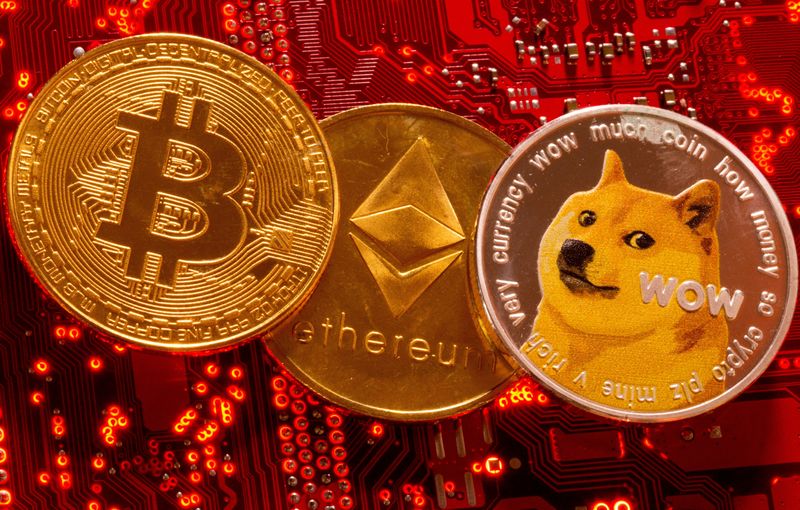By Marc Jones
LONDON (Reuters) - Cryptomarkets have not been killed off by last year's turmoil, while the new wave of central bank digital currencies will face geopolitical limits, the Bank for International Settlements' new innovation head has predicted.
Dubbed the central bank to the world's central bank, the BIS has long been critical of cryptocurrencies, likening bitcoin to both a ponzi scheme and market bubble in the past.
Last year's collapse of Sam Bankman-Fried’s FTX empire as well as Celcius, Three Arrows Capital and a number of 'stablecoins' saw many of its warnings come true as more than $2 trillion was wiped of the sector's value.
Since the start of 2023, however, there has been something of a rebound, including a 40% recovery in bitcoin's price.
"I would assume that the industry will learn from these failures and they will come up with new things," Cecilia Skingsley, the new head of the BIS 'Innovation Hub', told Reuters in her first in-depth interview since taking the role.
Pain in crypto land- https://www.reuters.com/graphics/GLOBAL-MARKETS/lgpdknmayvo/chart.png
The former Swedish central banker also said the problems had not appeared to have affected central banks' plans for what could be swathes of nationally-issued digital currencies (CBDCs) in the coming years.
As the global central bank umbrella body, the BIS has been coordinating many of the international experiments around CBDCs, which can be built either for public use or just for banks to use behind-the-scenes in the 'wholesale' money markets.
"Everything I hear is that those who have these projects are pushing on with them," Skingsley said.
Eleven countries have already launched a CBDC while over 100 more, representing over 95 percent of global GDP, are now exploring them, with this year set to see some significant milestones.
China for example will expand its digital yuan pilot to most of its 1.4 billion population. The European Central Bank should get the go-ahead for full-scale tests. The U.S. Federal Reserve is doing some testing too, while Australia, Britain, Brazil, India, South Korea and Russia are also taking important steps.
This global push comes as physical cash use falls globally and authorities look to fend off the threat to their money-printing powers from bitcoin and 'Big Tech' firms.
Sanctions imposed on countries like Russia and Venezuela in recent years have been another driver, including even for long-time U.S. allies like Europe, who want to ensure they have an alternative to the Visa (NYSE:V), Mastercard (NYSE:MA) and Swift networks.
"You need be resilient enough when it comes to defence, when it comes to food supply, but it also becomes important when it comes to payment systems," Skingsley said.
"I can understand the rationale for any country to ask, all right, how resilient are we? Which countries can be our friends, our allies?"
Countries exploring digital currencies- https://fingfx.thomsonreuters.com/gfx/mkt/jnpwyxakdpw/Pasted%20image%201675428344427.png
GEOPOLITICAL REALITY
While CBDCs should make currencies more high-tech and easier and cheaper to send to other countries, "tectonic plates" were likely to form with the new forms of e-money only fully interoperable between geopolitically-aligned countries, Skingsley said.
"We will never have full interconnectedness," Skingsley said, adding though that the BIS' work aimed to make CBDCs as versatile as possible.
"There will be too many frictions and not all countries in the world will be prepared to cooperate fully with all the other countries in the world - That's the reality."
She also responded to the low take-up of some of the CBDCs already, and to some of the scepticism voiced, including this month by the head of the Bank of England Andrew Bailey, that CBDCs may be a solution looking for a problem.

"There are some problems here," Skingsley said. "If you extrapolate the cash usage in many countries, cash will no longer be used as a payment method some time in the future."
"That opens up the question of how do you maintain public policy objectives that we think are important - namely trust in the money system."